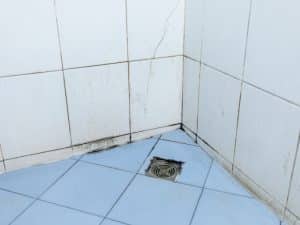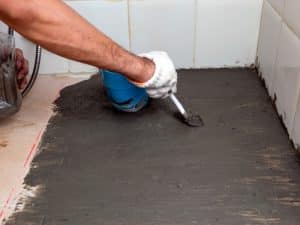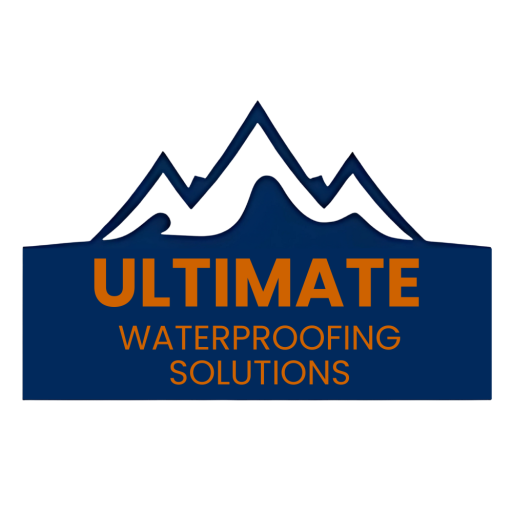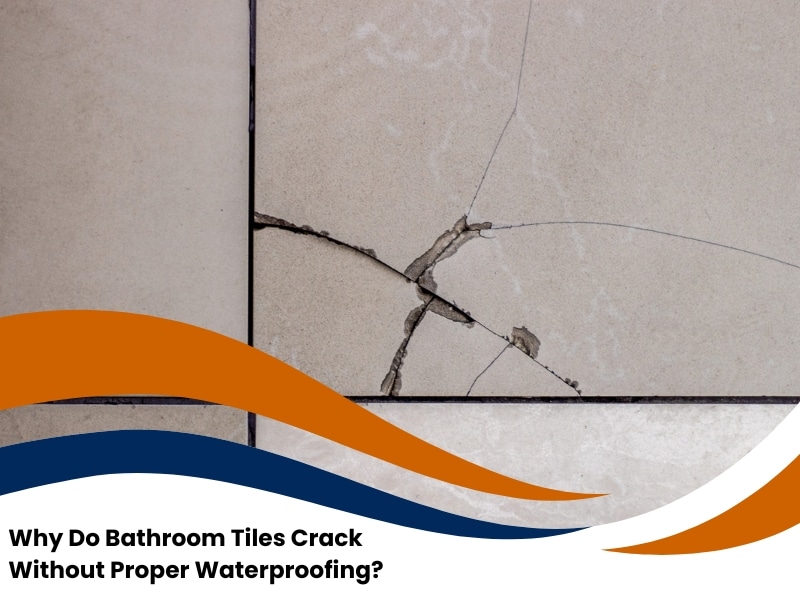Bathroom tiles are designed to be durable and resistant to water damage. However, when they crack, it often indicates an underlying issue that needs attention. One of the most common causes of a cracked bathroom tile is improper waterproofing. Without the right protection, water can seep beneath the tiles, leading to structural damage and tile cracking. This article explores why bathroom tiles crack without proper waterproofing and how you can avoid this issue.
What causes bathroom tiles to crack?
There are several reasons why bathroom tiles may crack, including:
- Excessive moisture: Constant exposure to water weakens the adhesive that holds the tiles in place.
- Poor installation: If tiles are not properly installed, they can shift and crack over time.
- Temperature fluctuations: Rapid temperature changes can cause materials to expand and contract, leading to tile cracks.
- Foundation shifting: Any movement in the building’s foundation can cause tiles to crack.
- Age: Over time, the grout and adhesive that secure the tiles can deteriorate, causing cracks.
How does improper waterproofing lead to cracked bathroom tiles?
Improper waterproofing allows moisture to seep beneath the tiles, leading to several problems:
- Water damage: Without proper waterproofing, water seeps into the underlying surfaces, weakening the structure and adhesive.
- Mould and mildew growth: Moisture buildup behind tiles creates a breeding ground for mould, which can affect tile adhesion.
- Tile expansion: Excess moisture causes tiles to swell, leading to cracks as the material expands and contracts.
- Structural damage: Prolonged exposure to water can damage the walls or floor, further contributing to tile cracks.
What are the signs that your bathroom needs professional waterproofing?
If you notice any of the following, your bathroom may need professional waterproofing:
- Visible water damage: Stains, warping, or dampness on walls or floors.
- Mould or mildew: A musty smell or visible mould growth near tiles or in corners.
- Loose or cracked tiles: Tiles that are no longer firmly attached or that show signs of cracking.
- Leaky pipes: Any signs of plumbing issues that lead to water seepage.
- Peeling paint or wallpaper: Water damage can cause paint or wallpaper to peel, signalling underlying moisture issues.

How does waterproofing protect against cracked bathroom tiles?
Waterproofing creates a barrier that prevents water from reaching the surfaces beneath your tiles, offering several benefits:
- Prevents moisture damage: Waterproof membranes stop water from penetrating beneath the tiles.
- Enhances tile longevity: Proper waterproofing ensures that tiles stay securely in place and last longer.
- Prevents mould growth: By keeping moisture at bay, waterproofing helps prevent the growth of mould and mildew.
- Preserve structural integrity: Waterproofing protects the walls and floor from water damage, preserving the overall structure of your bathroom.
Why is it essential to waterproof bathrooms during construction?
Waterproofing is essential during construction to avoid future problems such as:
- Preventing water damage: Waterproofing ensures that water cannot seep into the underlying structures, preventing expensive repairs later.
- Protecting property value: Waterproofed bathrooms increase the value of your property by ensuring they remain in good condition.
- Reducing maintenance costs: Waterproofing reduces the likelihood of costly repairs caused by water damage.
- Ensuring safety: Waterproofing helps to avoid slippery floors caused by water seepage, making your bathroom safer.
Furthermore, adhering to the National Construction Code 2022 – Wet Area Waterproofing ensures compliance with industry standards for moisture control in bathrooms.
How can you choose the best waterproofing solution to avoid cracked bathroom tiles?
When choosing a waterproofing solution, consider these factors:
- Material quality: Choose high-quality waterproofing materials that are durable and effective.
- Suitability for your bathroom: Make sure the solution is suitable for the specific type of bathroom surface (e.g., tiles, concrete, etc.).
- Professional application: Ensure that the waterproofing is applied by experienced professionals for optimal results.
- Long-term protection: Look for solutions that provide long-lasting protection against water damage.
- Compliance with standards: Ensure the waterproofing materials comply with local regulations and standards for safety.
Why should you hire professionals for bathroom waterproofing?
Hiring professionals for bathroom waterproofing is crucial for the following reasons:
- Expertise: Professionals have the necessary skills and experience to apply waterproofing correctly. Additionally, expert bathroom waterproofing solutions can help ensure lasting results.
- Proper equipment: Experts use high-quality tools and materials to ensure the waterproofing is done effectively.
- Time-saving: Professional waterproofing saves you time and ensures the job is done right the first time.
- Guaranteed results: A professional service typically comes with a warranty, ensuring your bathroom is properly protected for years.
- Avoiding future costs: By hiring a professional, you reduce the risk of future water damage and costly repairs.

Why choose Ultimate Waterproofing Solutions?
At Ultimate Waterproofing Solutions, we specialise in providing high-quality waterproofing services tailored to your bathroom’s needs. Our team of experts ensures that your bathroom is properly waterproofed, preventing tile cracks and long-term water damage. We are known for our reliability, efficiency, and customer satisfaction.
If you’re facing issues with cracked tiles or want to ensure your bathroom is fully waterproofed, contact Ultimate Waterproofing Solutions today for expert bathroom waterproofing in Sydney.
Frequently Asked Questions
Can you waterproof your bathroom yourself?
DIY waterproofing is possible but not recommended. It’s best to hire a professional to avoid costly mistakes.
How can you tell if your bathroom needs re-waterproofing?
Look for water stains, mould, peeling paint, or damaged grout. If you notice these, it’s time for re-waterproofing.
What are the benefits of waterproofing your bathroom?
Waterproofing prevents water damage, mould, and structural issues while preserving your tiles and flooring.
Is waterproofing the same as sealing your tiles?
No, waterproofing protects beneath the surfaces, while sealing protects the tile surface from water and stains.
How soon can you use your bathroom after waterproofing?
Wait 24 to 48 hours to let the waterproofing materials cure before using the bathroom.
How to fix a cracked bathroom tile?
To fix a cracked bathroom tile, remove the damaged tile, clean the surface, apply adhesive, and place the new tile. Once the adhesive dries, grout the edges. If unsure, it’s best to consult a How long does waterproofing last in a bathroom?
Waterproofing can last between 10 to 20 years, depending on materials and wear.
Can a cracked bathroom tile be repaired without replacing it?
In some cases, small cracks can be repaired with grout or adhesive, but significant damage usually requires tile replacement.
Is waterproofing necessary for all bathrooms?
Yes, waterproofing is essential for all bathrooms to protect against water damage.
How much does bathroom waterproofing cost?
Costs vary based on size and materials, but it’s best to get a quote from a professional waterproofing company.

